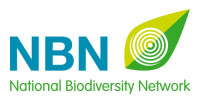About National biodiversity network
The National Biodiversity Network (NBN) is a UK-based collaborative venture that aims to make biodiversity information accessible through the internet via the NBN Atlas - the data search website of the NBN. The network was established in 2000 and has since grown to become one of the largest and most comprehensive sources of biodiversity data in Europe.
The NBN is made up of over 200 member organizations, including government agencies, NGOs, academic institutions, and individual experts. These members work together to collect, collate, and share biodiversity data from across the UK. The network's primary goal is to provide decision-makers with accurate and up-to-date information on biodiversity trends so that they can make informed decisions about conservation policy.
One of the key features of the NBN is its Atlas - a web-based platform that allows users to search for and access a wide range of biodiversity data from across the UK. The Atlas contains over 220 million species records contributed by more than 1,000 organizations. Users can search for specific species or habitats using a range of filters such as location, date range, taxonomic group or habitat type.
The NBN also provides tools for analyzing and visualizing this data so that users can gain insights into patterns and trends in biodiversity across different regions or time periods. For example, users can create maps showing where particular species have been recorded or track changes in population sizes over time.
In addition to providing access to existing data sets through its Atlas platform, the NBN also supports new research projects by providing advice on best practices for collecting and managing biodiversity data. This includes guidance on how to ensure that data are collected consistently across different sites or time periods so that they can be compared meaningfully.
Overall, the National Biodiversity Network plays an essential role in promoting conservation efforts throughout the UK by making it easier for decision-makers at all levels to access accurate information about local ecosystems' health status. Its Atlas platform is a valuable resource for researchers, policymakers, and conservationists alike, providing a wealth of data that can be used to inform evidence-based decision-making.
